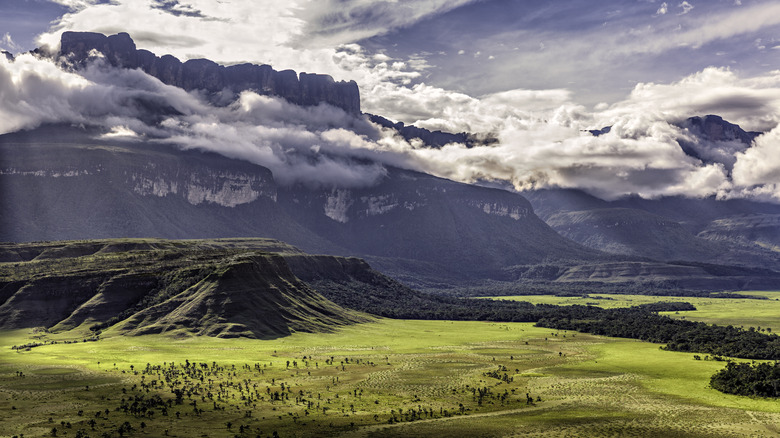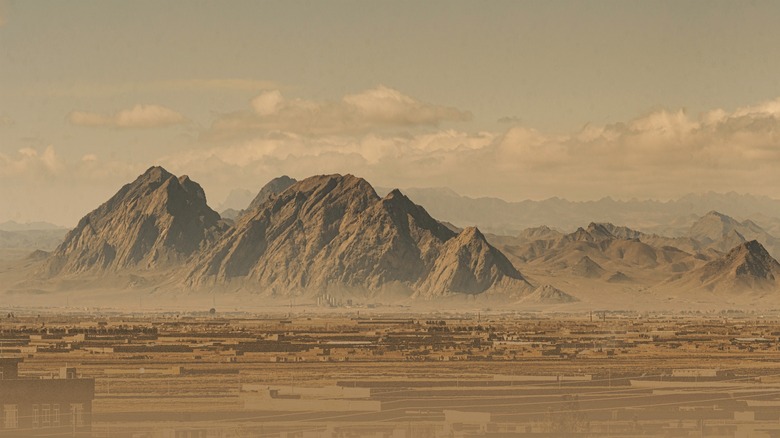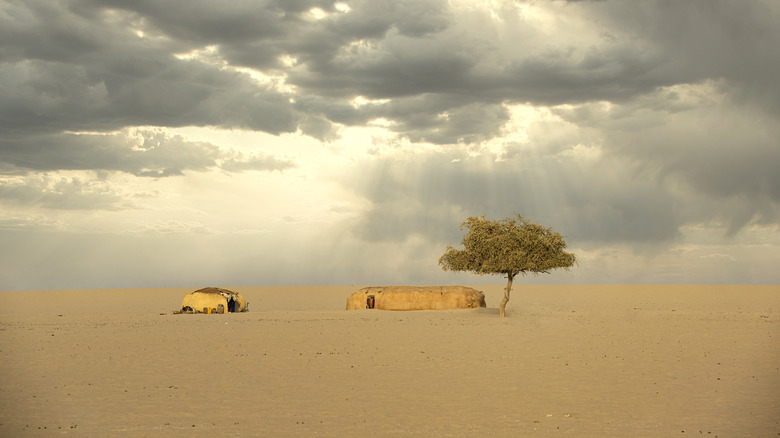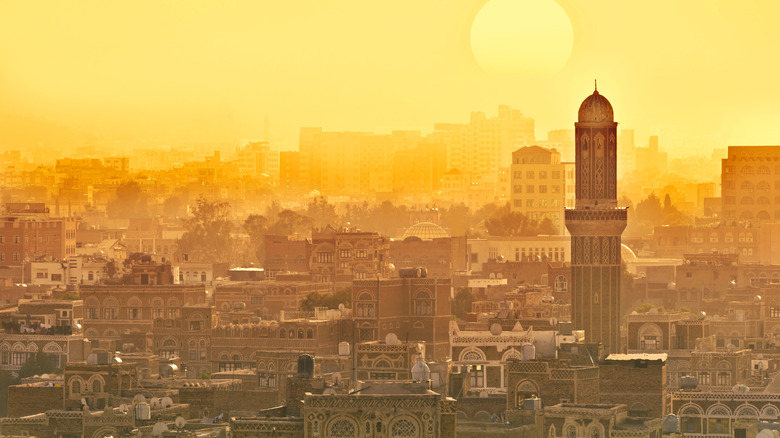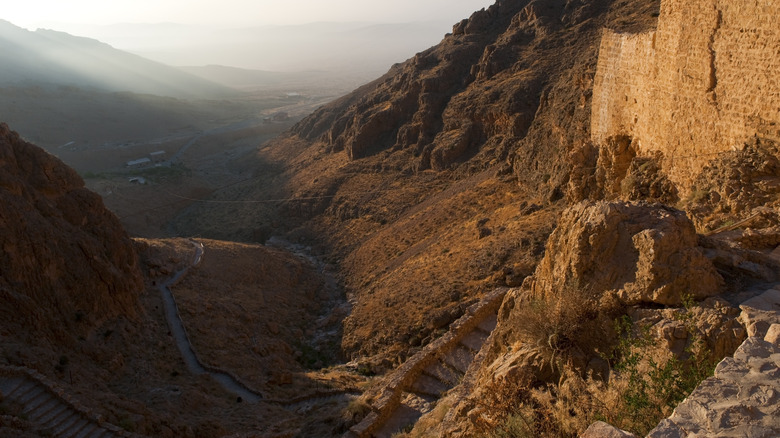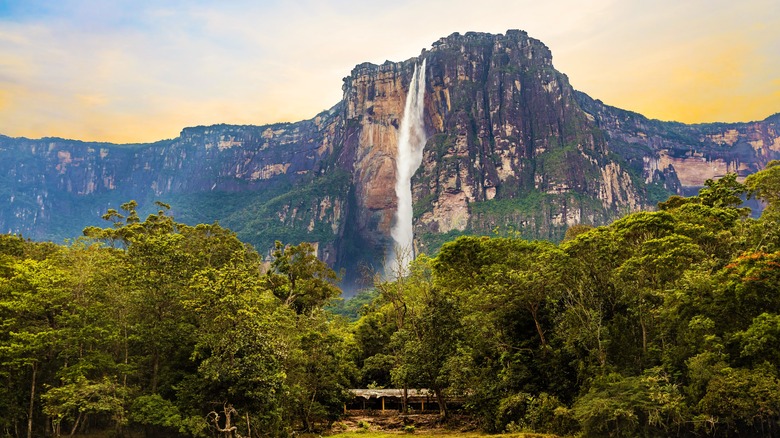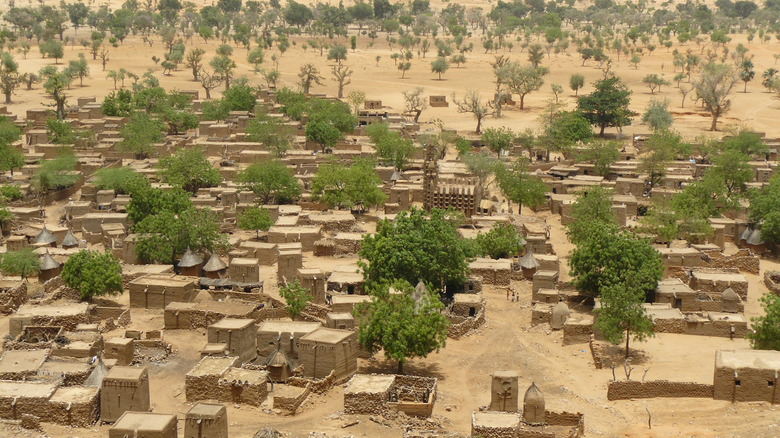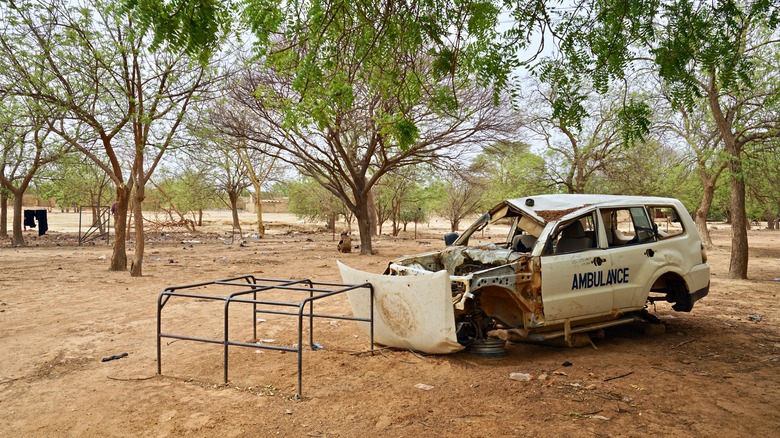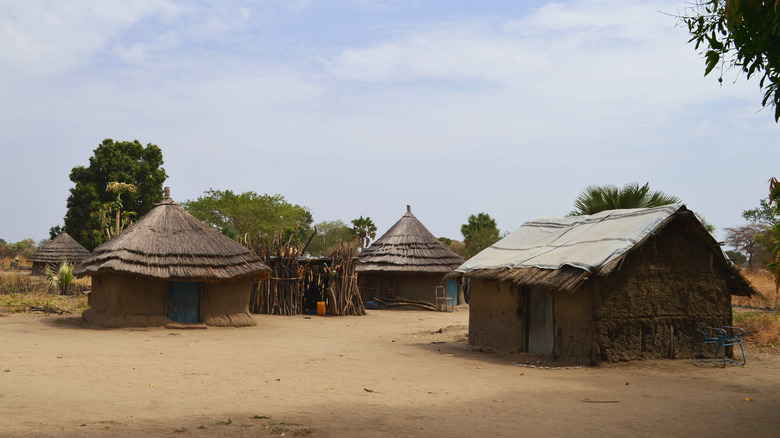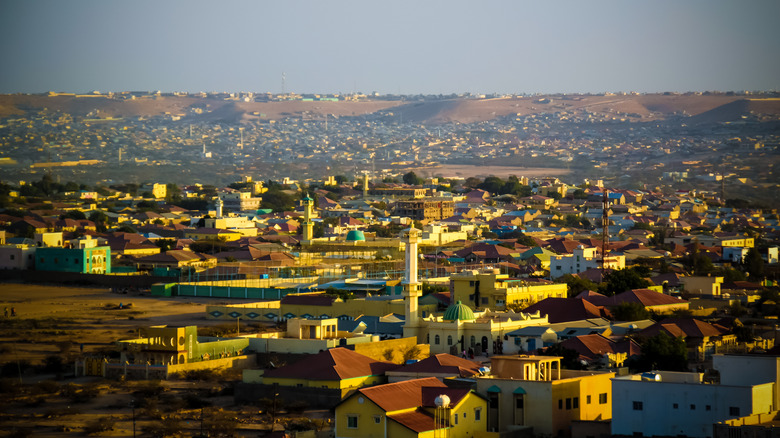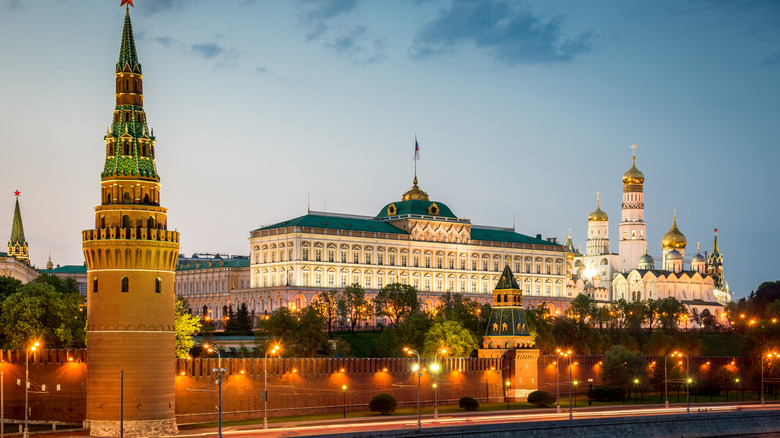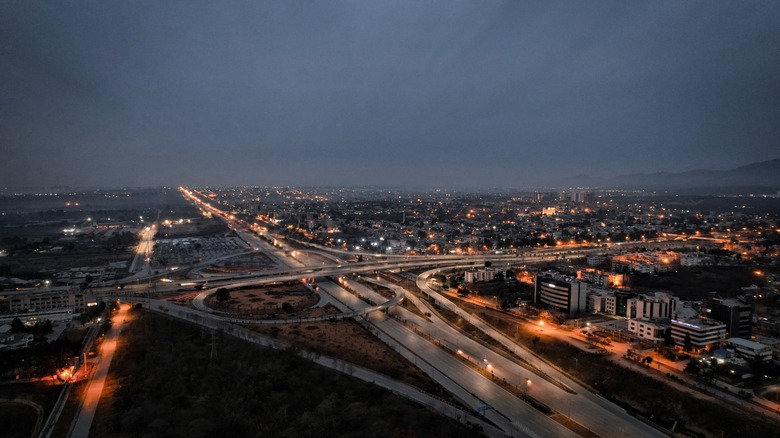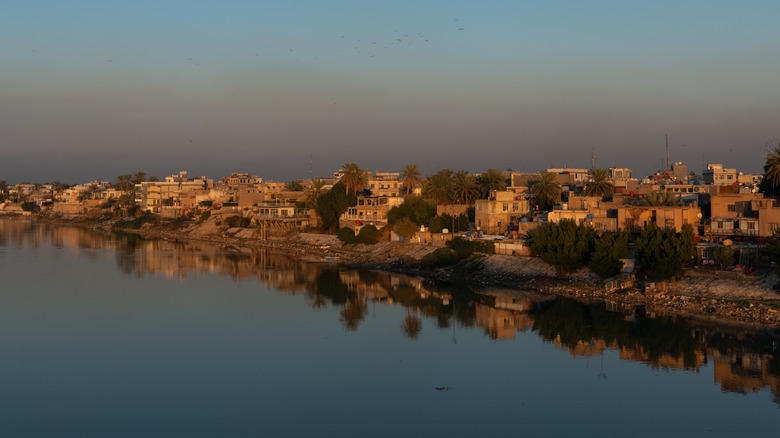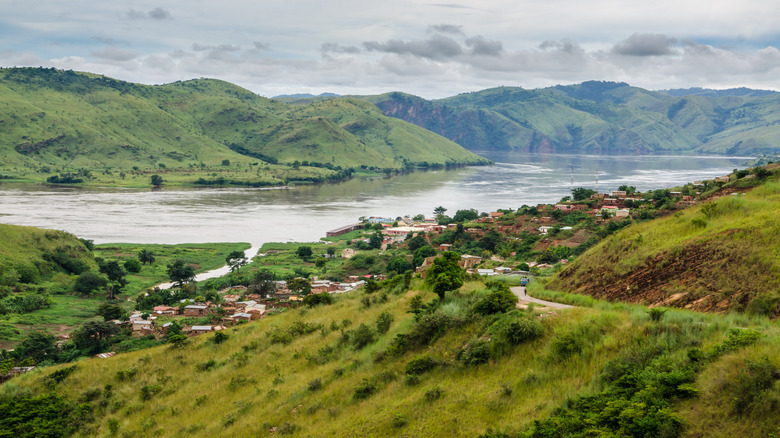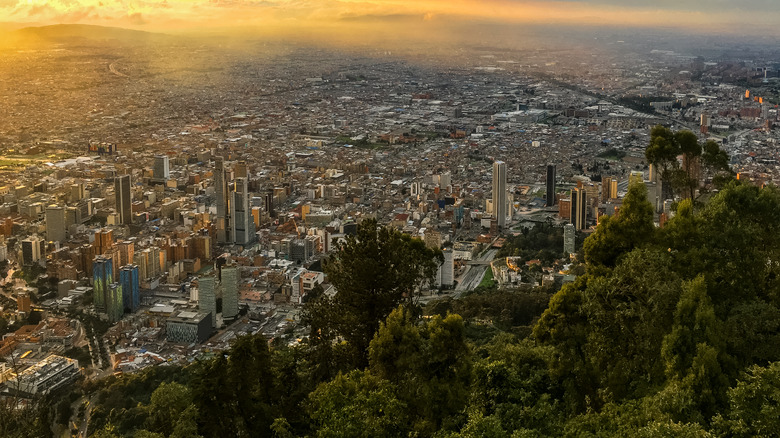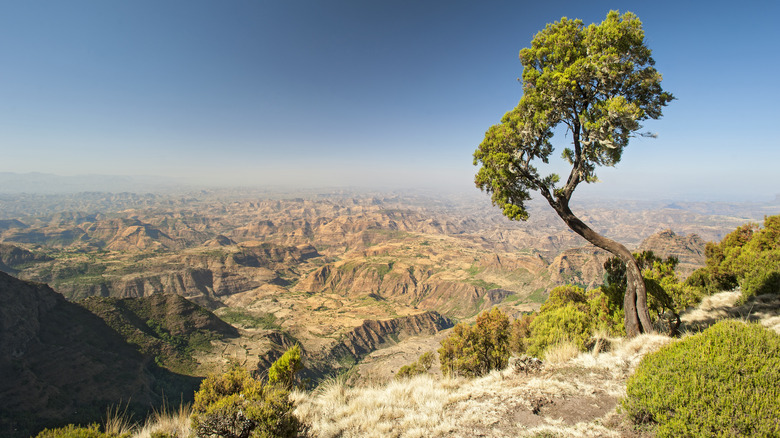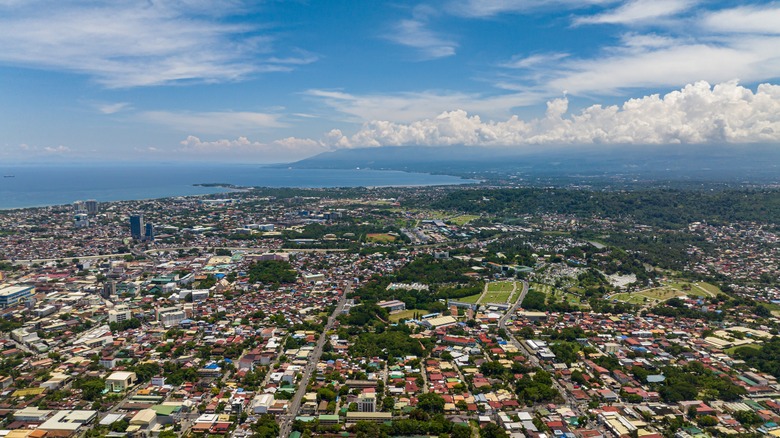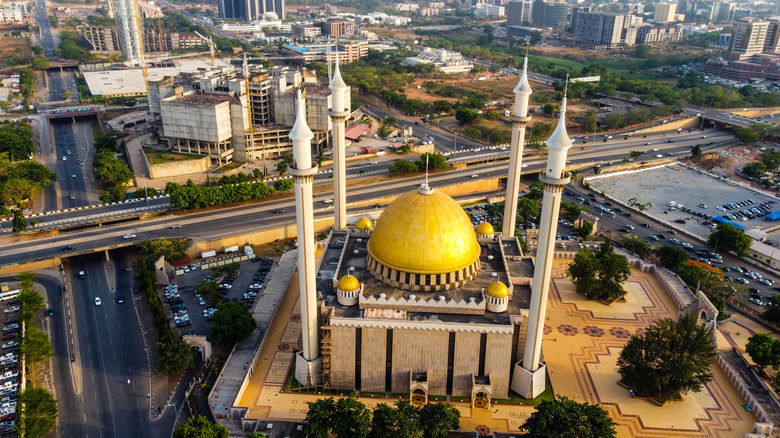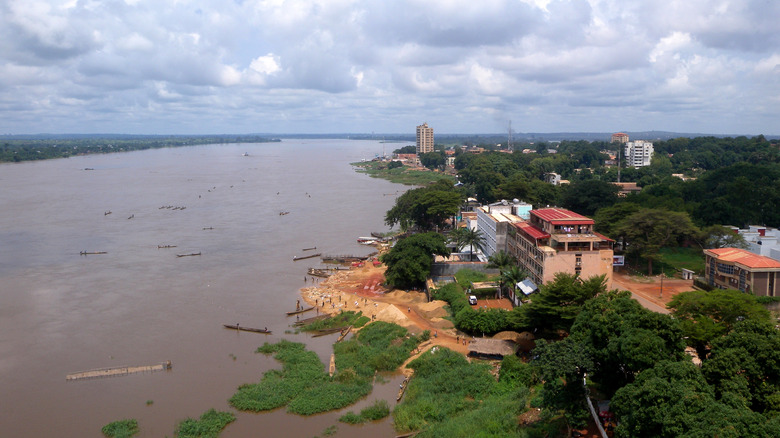The World's 20 Most Dangerous Countries For Foreigners
Traveling is an enriching experience, offering insights into diverse cultures, landscapes, and histories. However, from crime and health threats to political or social instability, not every destination is equally safe for visitors. This article pulls from three main references: the current Global Peace Index, the Global Conflict Tracker, and the Global Terrorism Index. These sources consider factors like public safety, militarization, current active conflicts, and the extent and impact of terrorism.
It is important to understand the internal and external influences that historically played a role in the instability of many countries on this list. For example, colonial powers structured many economies for resource extraction rather than development, leading to long-term economic challenges. We hope to offer travelers a better perspective on which destinations to approach cautiously. It's always wise to be informed, ensuring your journeys are memorable and safe. That said, let's delve into the countries that rank highest in risk and unravel the factors contributing to their challenges.
Afghanistan
Afghanistan ranks first on the Global Terrorism Index and last on the Global Peace Index. In the late 20th century, the Soviet invasion of 1979 plunged the nation into prolonged conflict. Aiming to counter Soviet influence, the U.S. supported mujahideen fighters, who later formed the backbone of the Taliban — an Islamic fundamentalist group that has endured ever since.
The Taliban ruled from 1996 until the U.S. invasion of Afghanistan in 2001. In 2021, the U.S. and international forces began withdrawing, and the Taliban rapidly advanced, capturing vast territories. By August 2021, they seized the capital of Kabul, effectively seizing the country. This swift transition ignited widespread panic and intensified humanitarian crises, with many fearing the establishment of a strict theocracy. Other terrorist organizations, such as ISIS, are also active and have skirmishes with Taliban forces. Despite this, airports and borders are open.
Chad
In North-Central Africa, Chad's boundaries are remnants of colonial design, leading to post-independence internal strife. War has resulted in minefields along the northern borders, and the Government of Chad is fighting on multiple fronts. Militant groups, including Boko Haram and Al-Qaeda affiliates, have focused on the Lake Chad region — vital for the livelihoods of millions. The Department of State warns travelers of the risks of violent crimes, such as armed robberies, carjackings, and kidnappings.
Chad grapples with deficit infrastructure and health issues. Medical facilities are scarce, and diseases like malaria, cholera, typhoid, and hepatitis A are widespread due to inadequate access to clean water. Despite numerous challenges, Chad hosts over 1 million displaced people, with 580,000 refugees from conflicts in neighboring countries like Cameroon, the Central African Republic, and Sudan. However, when coupled with Chad's inherent struggles, this influx of refugees places considerable pressure on the country's already stretched resources.
Yemen
Yemen was the crossroads of Africa and Asia. However, its modern history is marred by political unrest. It was once divided into two nations: The socialist South Yemen and the traditionalist North Yemen. After unification in 1990, the Houthi movement — originally a theological movement — gradually became more political. They saw the central Yemeni government as corrupt and too influenced by Western powers, and these grievances spurred rebellion.
After Houthi rebels began capturing significant portions of Yemen — including the capital, Sana'a — neighboring Saudi Arabia entered a coalition of countries in a 2015 military intervention. This ongoing conflict has devastated Yemen's infrastructure, economy, and social fabric. An offset of Al-Qaeda has also exploited the chaos, securing strongholds and orchestrating attacks. Frequent airstrikes, ground combats, and blockades have led to what the U.N. describes as the "world's worst humanitarian crisis." For travelers, threats don't just emerge from warfare — kidnapping, terrorism, and a collapsing health system further amplify risks.
Syria
Syria has been engulfed in a devastating civil war since 2011. Citizens demanded political reforms and the release of political prisoners, leading to a full-scale uprising against President Bashar al-Assad. The government's violent crackdown transformed peaceful demonstrations into an armed conflict. Over time, the situation was further complicated by the involvement of rebel groups, Kurdish forces, ISIS, and other Islamic militants.
Both visitors and residents of Syria face the dangers of kidnappings, detentions, and potential targeting by militants — and even the Syrian government. "At least 100,000 people are believed to be missing or have been forcibly disappeared in Syria since 2011, primarily at the hands of the Syrian government's security apparatus," Amnesty International's Secretary-General Agnès Callamard said in 2023. Some of the missing include journalists, activists, and medical personnel. As the conflict rages on, it has caused a severe humanitarian crisis with millions displaced and countless lives lost. Syria's intricate war landscape has made it one of the most dangerous zones globally — especially for children— with numerous historical landmarks and cities bearing the scars of conflict.
Ukraine
In 2014, Ukraine was thrust into the global spotlight due to the Euromaidan protests in Kyiv, where citizens demanded closer European ties. These demonstrations led to the ousting of President Viktor Yanukovych, aligning Ukraine with the West. Uneasy with this shift, Russia annexed Crimea, a peninsula previously under Ukrainian jurisdiction. Eastern Ukraine became a battleground for pro-Russian separatists and Ukrainian forces shortly after. Ceasefires and peace agreements saw multiple violations, and the fighting continued sporadically.
While Ukraine seeks closer ties with the European Union and NATO, Russia views Ukraine as integral to its sphere of influence. In February 2022, Russia launched a full-scale invasion of Ukraine. According to The New York Times, U.S. officials estimated nearly half a million Ukrainian and Russian troops had been killed or wounded as of August 2023, and the U.N. reported over 9,000 Ukrainian civilians had been killed as of July 2023. A massive displacement crisis is underway, as over 18 million people, predominantly women and children, have fled Ukraine, and 5.4 million remain displaced.
Venezuela
With an economy heavily reliant on oil exports, a sharp decline in oil prices around 2014 started an economic recession in Venezuela. The leadership of Nicolas Maduro has been accused of authoritarianism, electoral fraud, and human rights violations. From 2014 onward, widespread protests and political unrest have become commonplace, leading to frequent clashes between opposition supporters and government forces.
The country's instability, worsened by escalating crime rates, kidnappings, and deteriorating infrastructure, has made it increasingly dangerous for native Venezuelans and travelers. Law enforcement loyal to the regime has held Americans without informing U.S. authorities. Venezuelan territories adjoining Colombia, Brazil, and Guyana see threats from Colombian extremist factions like the National Liberation Army (ELN) and the Revolutionary Armed Forces of Colombia. This chaotic environment has instigated one of Latin America's most significant mass migrations, with millions of Venezuelans seeking safety in neighboring nations. Amid these challenges, Venezuela's safety and future remain uncertain.
Mali
Mali, in West Africa, boasts a rich history. Timbuktu, one of its cities, was once a global center of knowledge, trade, and culture. It gained independence from France in 1960 and grew into a democracy in the 1990s. But Mali has long faced tensions with the Tuareg — a nomadic people prevalent in the region, known for their role in trans-Saharan trade — and they sought greater autonomy in post-colonial Africa. After the Libyan Civil War in 2012, an influx of weapons and Tuareg mercenaries flooded Mali, empowering rebels and neighboring Islamic terrorist factions.
Since that time, terrorist and extremist groups have orchestrated hundreds of attacks and abductions targeting civilians and security personnel. In 2013, Mali sought military assistance from France, but by 2023, France had pulled out its forces. Germany, having stationed around 1,000 soldiers in Mali for U.N. peacekeeping, is also planning a withdrawal by 2024. Per Africanews, Mali's Foreign Minister Abdoulaye Diop called the U.N. mission a "failure."
Burkina Faso
Burkina Faso was a French colony in the late 19th century until its independence in 1960. After authoritarian rule, a democratic transition ensued, with elections in 2015 bringing Roch Marc Christian Kabore to the presidency until he was deposed in a coup in 2022. Burkina Faso's army quickly suspended the constitution, dissolved the National Assembly, and closed its borders.
Since 2015, Burkina Faso has been flooded with terrorist activities. Jihadist groups linked to Al-Qaeda and ISIS found opportunities in Burkina Faso's borders and local grievances amongst marginalized communities. Challenges from climate change — via agricultural and economic vulnerabilities — have worsened the situation, making regions more susceptible to extremist influence and operations. Terrorist attacks can occur unpredictably, targeting hotels, restaurants, police stations, and schools. A U.N. report says nearly a quarter of Burkina Faso's 22 million population urgently requires humanitarian aid.
South Sudan
In 2011, South Sudan voted to secede from Sudan, making it the world's youngest nation. After independence, South Sudan was plunged into a civil war rooted in political power struggles. This conflict quickly took on ethnic dimensions, leading to atrocities on both sides. The war led to millions displaced from their homes and widespread famine. In 2018, a peace treaty led to a 2020 unity government that included representatives from both warring parties. However, South Sudan continues to face violence and threats to peace.
Community-based violence has escalated due to unresolved war grievances and disputes over land, leading to massive casualties and displacements. Political and military elites have aggravated the situation by arming these communities. In response, the U.N. established a network of camps to house civilians, though the agency scaled back mission personnel in 2020. Moreover, reporting in South Sudan without official authorization is deemed illegal, posing substantial risks to journalists. Several journalists have been killed while reporting on the unrest.
Somalia
In the late 19th and early 20th centuries, European powers divided Somalia, with the British, French, and Italians each controlling key parts. These colonial territories evolved distinct administrative and economic systems, complicating their union into the Somali Republic in 1960. The dream of a "Greater Somalia" emerged from the desire to unite all Somali-inhabited regions, which led to conflict with parts of present-day Ethiopia, Kenya, and Djibouti.
In 1969, a coup ushered in Siad Barre's authoritarian rule in Somalia, lasting two decades. The regime's 1991 collapse created a power vacuum, leading to factional battles. Amidst the turmoil, Al-Shabaab — an extremist group allied with Al-Qaeda — rose to prominence, controlling significant territories. African Union forces pushed them from many urban centers, but their insurgency remains. Piracy, illegal roadblocks, kidnappings, and bombings are widespread. Facilities termed "cultural rehabilitation" centers have been established to correct or rehabilitate individuals seen as deviating from culturally and religiously accepted norms.
Russia
According to the Global Peace Index, Russia's invasion of Ukraine and its consequences were the main drivers of global deterioration in peacefulness. Both Russia and Ukraine are now ranked amongst the 10 least peaceful countries. The U.S. Embassy in Moscow has warned that Russian security agencies have detained U.S. citizens based on dubious allegations. Additionally, U.S. citizens involved in religious activities have faced random law enforcement and questionable legal investigations.
Flight options into and out of the country are limited, as is the U.S. Embassy's ability to assist, especially outside Moscow. There have been reports of drone strikes in Western Russia, particularly near the Ukrainian border and major cities. Dual U.S.-Russian citizens risk Russia ignoring their U.S. citizenship — making them susceptible to conscription — or preventing their departure. The sanctions imposed have also disrupted electronic money transfers, leading to cash shortages.
Pakistan
In 2013, there was a surge in terrorist attacks in Pakistan, averaging nearly four daily and resulting in around 2,700 deaths, East Asia Forum reported. The situation is escalating, with the Global Terrorism Index reporting 298 terror incidents and 643 fatalities in 2022. Fueling this unrest is a trio of militant groups: The Tehrik-e-Taliban Pakistan (TTP), the Baloch Liberation Army (BLA), and the Islamic State of Khorasan Province (ISKP) — a regional affiliate of ISIS.
The TTP wants to establish Sharia law in Pakistan and to oppose the Pakistani state, the BLA seeks independence, and the ISKP aims to establish a caliphate in the Afghanistan-Pakistan region. Regardless of motivations, these groups have been responsible for hundreds of bombings, kidnappings, and assassinations. Border clashes with the now Taliban-run Afghanistan have also increased. Pakistan initially celebrated the Taliban's capture of Kabul, viewing them as allies. However, the TPP's attack surge has prompted the country to reconsider its stance.
Iraq
Iraq's tumultuous history continues to shape its present security situation. Post Saddam, the 2003 U.S.-led invasion unleashed deep-rooted sectarian divisions, with the subsequent power vacuum fueling the rise of extremist factions, notably ISIS. By 2014, ISIS dominated nearly half of Iraq. However, by 2018, the group had lost most of its territory.
Facing counterterrorism pressures, ISIS has decreased its attacks in Iraq to regroup. Nevertheless, a recent U.N. report states that ISIS retains 5,000 to 7,000 members across Iraq and Syria. While Iraq's rich heritage draws tourists back, and efforts are underway to boost infrastructure, the security threat persists. In 2022, Iraq topped the list for ISIS-related attacks, with 183 incidents recorded by the Global Terrorism Index. The U.S., Canada, and the U.K. advise against traveling to Iraq due to risks like kidnappings, IEDs, and drone strikes. Visitors near Iraq's northern borders also face threats from Turkish airstrikes aimed at Kurdish rebels.
Democratic Republic of the Congo
The Democratic Republic of the Congo boasts the world's most wealth in natural resources, with its untapped minerals valued at around $24 trillion. However, the nation's wealth has been a source of strife, with various groups vying for control over minerals. Despite U.N. peacekeepers' 20-year presence, insurgencies persist, leading to growing anti-U.N. sentiments among locals. Protests have often led to deadly confrontations.
Militia goals are linked to everything from political and territorial to ethnic and ideological reasons, and they continually challenge state forces. This causes widespread deaths and displacements and outbreaks of violence and disease such as Ebola, especially in the eastern regions. While the U.N. plans to exit the DRC in 2024, challenges of corruption, underdevelopment, and violence — both by the rebels and the government forces — remain.
Colombia
Colombia's longstanding internal conflicts have involved state forces, paramilitaries, criminal organizations, and leftist rebels, notably the Revolutionary Armed Forces of Colombia (FARC) and the National Liberation Army (ELN). Unsurprisingly, drug-related crime, terrorism, civil disturbances, and kidnappings pose the most danger to foreigners. These risks are higher in cities like Buenaventura, Tumaco, and Cúcuta, as well as regions like the Darién Gap, Guainía, and Vichada. In general, travelers should keep at least 20 kilometers away from the violent Venezuelan and Ecuadorian borders.
According to the Global Terrorism Index, attacks escalated until 2019, peaking at 342 incidents — when dissident factions from both FARC and ELN were unsatisfied with peace agreements and continued hostilities. A temporary truce was initiated in 2022, with peace talks ongoing in Venezuela. The lucrative drug market heightens the violence, with multiple factions battling for dominance over production and distribution. Additionally, Venezuela's crisis has caused an influx of refugees into Colombia, worsening socio-economic tensions.
Ethiopia
Ethiopia was proudly never colonized. However, proxy wars, ethnic and religious tensions, and economic challenges have contributed to the country's dangers. The Tigray conflict — initiated in 2020 between the Tigrayan People's Liberation Front (TPLF) and Ethiopian federal forces — has escalated, causing numerous casualties, displacements, and a humanitarian crisis. This conflict has spilled over, drawing Eritrean forces and affecting neighboring regions.
Other regional disputes have added to the instability, notably in the Oromia and Somali regions. Internally displaced populations, human rights abuses, and sporadic ethnic clashes heighten the severity. External tensions are also present, particularly with Egypt and Sudan over Nile River water rights. Kidnapping risks are higher in the southern parts of the Somali region and areas close to the Kenya and South Sudan borders. Border regions with Eritrea, Sudan, and Somalia have landmines from past conflicts, making off-road travel hazardous.
Philippines
The Philippines is mostly safe and inviting for travelers. However, the nation faces regional security challenges that have led to its high ranking on the Global Terrorism Index. Predominantly, the southern region — particularly Mindanao — has ongoing conflicts involving terrorist groups like Abu Sayyaf and the New People's Army.
In September 2016, due to widespread incidents like civilian abductions, murders, bombings, highway robberies, attacks on military bases, and assassinations, an emergency was declared in Mindanao. Although it was lifted in July 2023, countries like the U.S. and Canada still advise against traveling to western and central Mindanao and the Sulu archipelago.
Nigeria
In Nigeria, Africa's most populated country, the 2009 rise of the extremist group Boko Haram in the northeast has long posed a threat, marked by bombings, kidnappings, and insurgency. Boko Haram has since aligned with ISIS, renaming itself the Islamic State in the West African Province (ISWAP). A separate Boko Haram faction persisted until 2021, when ISWAP overtook it, consolidating power in northeastern Nigeria and parts of Niger.
The growth of violent extremism is linked to weak governance marked by corruption, frequent changes in leadership, and human rights abuses. The northern rural regions are underdeveloped and vulnerable to extremist influence. In 2022, the U.S. and U.K. withdrew embassy staff from Nigeria due to an increased threat of terrorist attacks.
Myanmar
In Myanmar, the Rohingya — a marginalized Muslim group exceeding 1 million — face extreme discrimination. Buddhist nationalist entities advocate for Muslim boycotts, expulsion, and attacks on communities. The 2017 Rohingya crisis drew international condemnation when military operations in Rakhine State led to massive displacements, and it was accused of ethnic cleansing. In some regions, unmarked land mines and leftover explosives pose risks.
The situation deteriorated further in recent developments after the military, known as the Tatmadaw, carried out a coup in 2021. This has sparked widespread protests, a civil disobedience movement, and violent crackdowns, leading to casualties and arrests, with reports of confrontations between local resistance groups and the military. The U.S. warns nationals in Myanmar risk being held without the ability to contact U.S. consular support.
Central African Republic
A religious conflict rooted in the Central African Republic's political, economic, and regional dynamics has caused thousands of deaths and displaced over a million people. Since 2014, U.N. peacekeepers have been stationed to bring stability, yet unrest continues. Various militant groups dominate vast regions, posing risks to travelers. The government's control is mostly confined to the capital, Bangui.
Crimes and human rights abuses have been perpetrated by various factions, including rebel groups, national military forces, mercenaries like the Wagner Group from Russia, and even some U.N. peacekeepers. In 2022, 5.6% of the population was killed, a mortality rate higher than any other nation.
